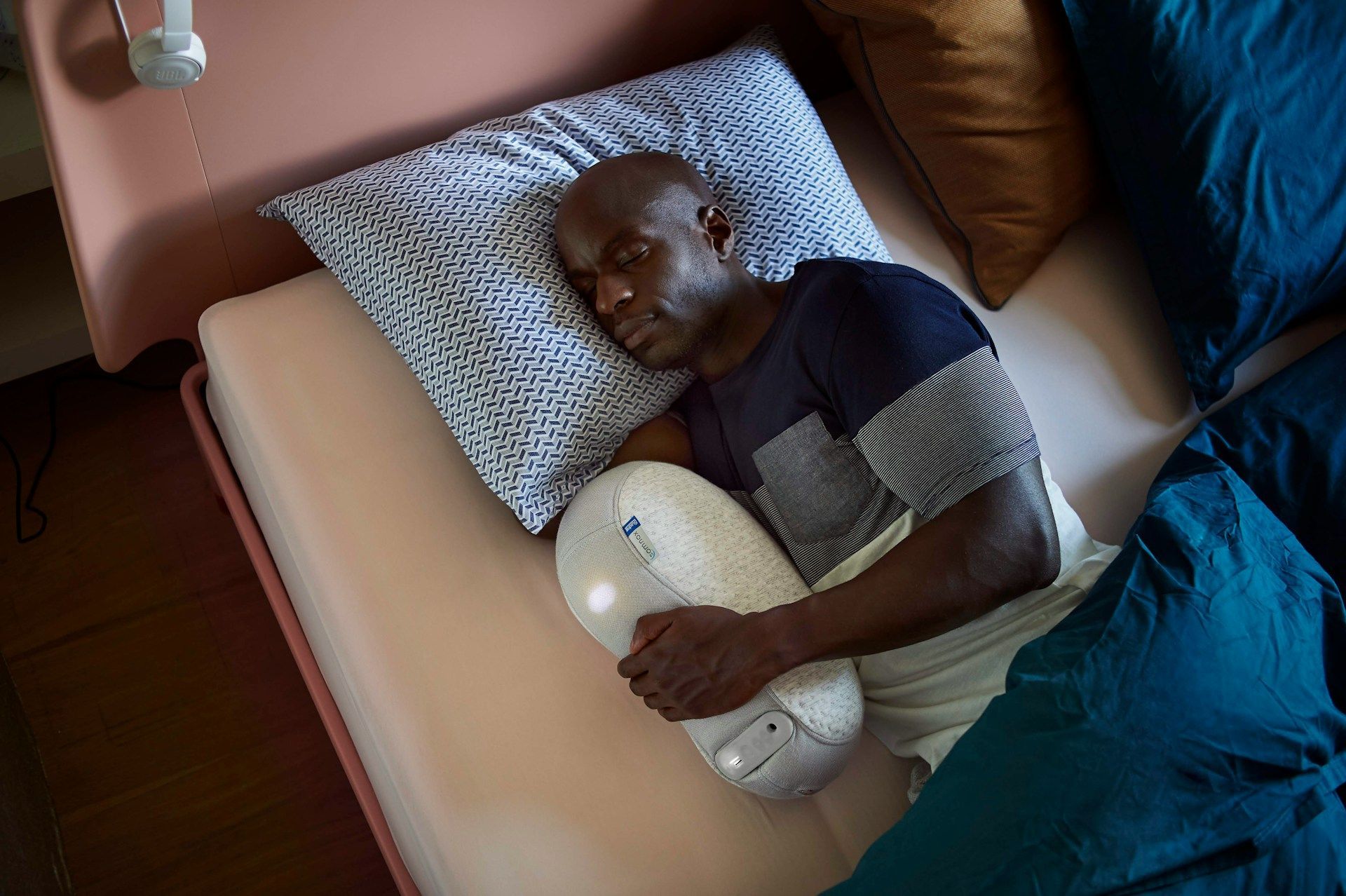The Link Between Sleep Apnea and Heart Health: Understanding the Risks and Solutions

Sleep apnea is a prevalent sleep disorder that affects millions of individuals worldwide. Sleep Advantage, a sleep apnea treatment center located in Arlington, WA, specializes in providing assistance to those looking for alternative solutions to snoring.
While sleep apnea's impact on daily functioning, sleep quality, and overall well-being are apparent, the disorder's effects on heart health are often overlooked. It is crucial for those affected by sleep apnea to understand the risks associated with heart health and the ways in which they can manage these risks for improved overall health.
In this informative blog post, we will delve into the connection between sleep apnea and heart health, discussing how the sleep disorder can contribute to cardiovascular issues and exploring the steps that can be taken to mitigate these risks. By providing a comprehensive resource on the sleep apnea-heart health link, Sleep Advantage aims to educate and empower individuals in making better health decisions, paving the way for enhanced well-being and quality of life.
The potentially harmful effects of sleep apnea on heart health should not be underestimated. When left untreated, sleep apnea can contribute to a range of cardiovascular issues, such as high blood pressure, irregular heart rhythms, heart attack, and stroke. The heart's functioning becomes compromised over time through a combination of the constant strain on the cardiovascular system due to erratic breathing patterns and the intermittent drops in blood oxygen levels experienced with sleep apnea.
This blog post aims to provide valuable insights into how sleep apnea can affect heart health, while highlighting the crucial role of timely intervention and treatment in reducing these risks. Moreover, we will discuss the importance of adopting individualized and comprehensive management strategies tailored to each patient's unique needs, promoting better heart health alongside improved sleep apnea management.
As a sleep apnea treatment center, Sleep Advantage emphasizes the importance of understanding the broader implications of sleep apnea, including its impact on cardiovascular health, to provide well-rounded patient care.
The Link Between Sleep Apnea and Heart Health: Understanding the Risks and Solutions
To develop a comprehensive understanding of the relationship between sleep apnea and heart health, Sleep Advantage believes it's crucial to educate patients about this connection and provide guidance on managing the associated risks. This blog post explores the impact of sleep apnea on cardiovascular health, delving into how individuals can take proactive measures for better overall well-being.
How Sleep Apnea Affects Heart Health
The connection between sleep apnea and heart health can be traced back to the sleep disorder's tendency to disrupt normal breathing patterns. When individuals with sleep apnea experience episodes of interrupted breathing, their blood oxygen levels decrease. Repeated disruptions can place significant stress on the cardiovascular system, leading to the following consequences:
- High Blood Pressure: The frequent fluctuations in blood oxygen levels caused by sleep apnea can contribute to elevated blood pressure, increasing the risk of heart-related issues.
- Arrhythmias: Sleep apnea can cause abnormal or irregular heart rhythms, which may increase the risk of stroke or heart failure.
- Heart Attack and Stroke: The combination of high blood pressure, arrhythmias, and oxidative stress resulting from sleep apnea can heighten the risk of heart attack and stroke.
- Heart Failure: Prolonged, untreated sleep apnea may contribute to the development of heart failure as the heart struggles to provide adequate blood flow.
Intervention and Treatment for Sleep Apnea and Heart Health
Timely intervention and proper treatment are paramount in reducing the cardiovascular risks associated with sleep apnea. Sleep Advantage emphasizes the importance of developing individualized treatment plans that address both sleep apnea symptoms and associated cardiovascular concerns. Some of the most effective strategies include:
- Lifestyle Changes: Encouraging weight loss, regular exercise, smoking cessation, and a healthy diet can improve overall heart health and alleviate sleep apnea symptoms.
- Alternative Sleep Apnea Treatments: Individuals intolerant of CPAP therapy can explore alternative treatments such as oral appliance therapy, positional therapy, and hypoglossal nerve stimulation to effectively manage sleep apnea and reduce associated cardiovascular risks.
- Medication and Medical Management: In some cases, medication to manage high blood pressure or other cardiovascular issues may be necessary. Coordination with healthcare providers is crucial in developing a comprehensive treatment plan.
Monitoring and Managing Sleep Apnea for Better Heart Health
As a vital component in managing the connection between sleep apnea and heart health, ongoing monitoring and continual adjustments to treatment plans are essential. Regular visits to Sleep Advantage and other healthcare providers ensure the following:
- Consistent Monitoring: Regular check-ups allow healthcare providers to detect any significant changes in your sleep apnea symptoms or heart health, acting as an early-warning system to help prevent further complications.
- Treatment Adjustments: As your condition evolves, treatment adjustments may be necessary to maintain optimal management of sleep apnea and heart health.
- Patient Education: Continual communication with healthcare providers keeps patients informed, empowered, and actively engaged in their health management.
A United Approach: Collaboration Between Sleep Advantage and Cardiologists
To optimize care for patients with sleep apnea and heart health concerns, it's beneficial for sleep doctors like Sleep Advantage to collaborate with cardiologists. This united approach encourages comprehensive treatment plans, enabling patients to effectively manage both their sleep apnea and underlying heart health issues. Collaboration offers the following advantages:
- Comprehensive Assessment: Collaboration between sleep doctors and cardiologists ensures that all aspects of the patient's condition are evaluated, leading to a more accurate and holistic understanding of their health.
- Coordinated Care Plan: By working together, sleep doctors and cardiologists can develop a joint care plan that addresses both sleep apnea symptoms and heart health concerns, resulting in more effective management.
- Enhanced Support Network: Building a team of healthcare providers strengthens the support network for patients, offering them a wealth of expertise, guidance, and resources for their health journey.
Conclusion
Understanding the connection between sleep apnea and heart health is essential for individuals affected by the condition. By managing their sleep apnea symptoms and adopting a proactive approach to heart health, individuals can lessen the associated cardiovascular risks, improving their overall well-being and quality of life.
Sleep Advantage is committed to providing comprehensive care, guidance, and education on this critical issue. Collaborative efforts between sleep doctors and cardiologists can help equip patients with the tools and support they need to take control of their sleep apnea and heart health, paving the way for a healthier, happier future. Visit our website to explore the benefits of using a mouthpiece for sleep apnea and more.
Disclaimer:
Our blog articles serve to educate readers about various treatment options for sleep apnea and TMJ disorders. It's important to understand that while we discuss multiple treatments in our posts, not all of these options may be accessible at our clinic. We encourage you to reach out and schedule a consultation with us. This way, we can carefully devise a personalized treatment plan that caters to your specific needs.










